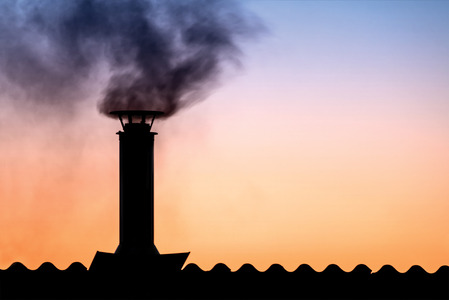100 signatures reached
To: West Coast Regional Council
Ban toxic coal fires

We call on you to ban coal fires in the West Coast region.
Why is this important?
Good air quality is essential to health and wellbeing. Although we on the West Coast enjoy a beautiful natural environment, many areas (including some outside the Reefton air-shed) are prone to low air quality in winter from the burning of coal in many of our homes.
Toxic coal smoke is extremely harmful for our environment and people's health. Air quality in West Coast urban areas is being significantly compromised by burning coal for domestic heating in winter.
Coal fires are used by 35 percent of the properties in the Buller region and 41 percent in the Grey region (compared to only 4% nationally). Air pollution can affect people’s health, especially their heart and lungs – and can even lead to early death. Particulate matter causes most of the health effects from air pollution. Wood and coal fires are the largest contributor of human made particulate matter (PM10) in New Zealand.
The West Coast Regional Council (WCRC) has only one permanent air quality monitoring site, located in Reefton.
Mitigation and adaptation to climate change is the key challenge facing us all. Carbon dioxide is by far the largest contributor to global greenhouse gases. It lasts in the atmosphere for many thousands of years, continuing to warm the temperature.
Coal is the single biggest source of climate changing CO2 pollution and the biggest risk to the future. Of the fossil fuels left in the ground and available to burn, 79% of the global warming potential is from coal.
Beside CO2, burning coal releases sulphur dioxide and nitrogen oxides into the air, which globally create acid rain and smog.
To avoid the catastrophic impacts of climate change we need to keep global temperature rise below 2ºC (compared to pre¬industrial levels). To do this, global greenhouse gas emissions must peak by 2020 and from there go down to zero.
Coal is the dirtiest fuel we could be burning. The small number of coal users means getting rid of coal is an easy solution. Let’s ban it now!
This is an issue important to us and will affect our votes in the 2022 local elections.
🔥 Act now for the health of the environment and the health of the people living on the West Coast and Buller regions. Sign and share our petition! 🔥
Notes
Proportion of Households Using Wood and Coal fires as a Source of Home Heating https://ehinz.ac.nz/assets/Factsheets/Released-2015/EHI13-14-ProportionOfHouseholdsUsingWoodAndCoalasASourceOfHomeHeating1996-2013-released201501.pdf
Submissions on air quality https://www.wcrc.govt.nz/repository/libraries/id:2459ikxj617q9ser65rr/hierarchy/Documents/Publications/Regional%20Plans/Regional%20Policy%20Statement/Hearing/Chapters/Chapter%2010%20-%20Air%20Quality.pdf
https://coalaction.org.nz/coal-facts
West Coast - State of the Environment 2018 https://www.wcrc.govt.nz/repository/libraries/id:2459ikxj617q9ser65rr/hierarchy/Documents/Environment/State%20of%20Environment/SOEDocument_v12.pdf
Toxic coal smoke is extremely harmful for our environment and people's health. Air quality in West Coast urban areas is being significantly compromised by burning coal for domestic heating in winter.
Coal fires are used by 35 percent of the properties in the Buller region and 41 percent in the Grey region (compared to only 4% nationally). Air pollution can affect people’s health, especially their heart and lungs – and can even lead to early death. Particulate matter causes most of the health effects from air pollution. Wood and coal fires are the largest contributor of human made particulate matter (PM10) in New Zealand.
The West Coast Regional Council (WCRC) has only one permanent air quality monitoring site, located in Reefton.
Mitigation and adaptation to climate change is the key challenge facing us all. Carbon dioxide is by far the largest contributor to global greenhouse gases. It lasts in the atmosphere for many thousands of years, continuing to warm the temperature.
Coal is the single biggest source of climate changing CO2 pollution and the biggest risk to the future. Of the fossil fuels left in the ground and available to burn, 79% of the global warming potential is from coal.
Beside CO2, burning coal releases sulphur dioxide and nitrogen oxides into the air, which globally create acid rain and smog.
To avoid the catastrophic impacts of climate change we need to keep global temperature rise below 2ºC (compared to pre¬industrial levels). To do this, global greenhouse gas emissions must peak by 2020 and from there go down to zero.
Coal is the dirtiest fuel we could be burning. The small number of coal users means getting rid of coal is an easy solution. Let’s ban it now!
This is an issue important to us and will affect our votes in the 2022 local elections.
🔥 Act now for the health of the environment and the health of the people living on the West Coast and Buller regions. Sign and share our petition! 🔥
Notes
Proportion of Households Using Wood and Coal fires as a Source of Home Heating https://ehinz.ac.nz/assets/Factsheets/Released-2015/EHI13-14-ProportionOfHouseholdsUsingWoodAndCoalasASourceOfHomeHeating1996-2013-released201501.pdf
Submissions on air quality https://www.wcrc.govt.nz/repository/libraries/id:2459ikxj617q9ser65rr/hierarchy/Documents/Publications/Regional%20Plans/Regional%20Policy%20Statement/Hearing/Chapters/Chapter%2010%20-%20Air%20Quality.pdf
https://coalaction.org.nz/coal-facts
West Coast - State of the Environment 2018 https://www.wcrc.govt.nz/repository/libraries/id:2459ikxj617q9ser65rr/hierarchy/Documents/Environment/State%20of%20Environment/SOEDocument_v12.pdf
How it will be delivered
At a Council meeting
